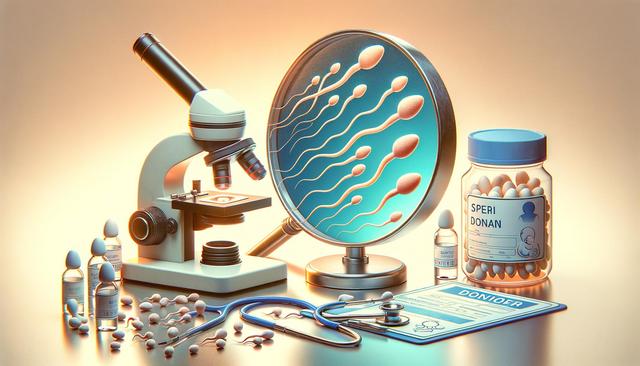The Significance of Sperm Donation
Sperm donation plays a critical role in the realm of reproductive health, providing a viable pathway for individuals and couples looking to build their families. This process offers hope and possibilities for those who face challenges with natural conception, including male infertility, single women desiring to become mothers, and same-sex couples wishing to have children. By offering a genetic contribution, donors assist in fulfilling dreams of parenthood that might otherwise remain unattainable. The significance of sperm donation extends beyond biological contribution; it represents a societal shift towards inclusive family structures, acknowledging diverse ways families are formed in the modern age.
Understanding the Donation Process
The process of sperm donation involves several stages to ensure safety and efficacy for both donors and recipients. Firstly, potential donors undergo a comprehensive screening process, which includes a medical history review, physical examination, and genetic testing. This rigorous evaluation ensures the health and suitability of the donor. Once approved, donors provide samples that are analyzed and stored for future use. The actual donation process is typically simple and non-invasive, occurring in a clinical setting to maintain hygiene and safety. After donation, the sperm is frozen and quarantined, undergoing further testing before being made available to recipients.
Choosing the Right Donor
For recipients, selecting the right donor is a deeply personal decision influenced by various factors. Many opt to use donor profiles that provide information about the donor’s background, including education, physical traits, and personal interests. Some recipients may prioritize physical resemblance, while others focus on genetic compatibility or personal attributes that align with their values. Generally, the process of choosing a donor involves:
- Reviewing detailed donor profiles
- Considering the donor’s medical and genetic history
- Reflecting on personal and familial preferences
- Consulting with medical professionals for guidance
This thoughtful selection process ensures that recipients feel confident and comfortable with their choice, paving the way for a positive family-building experience.
The Impact on Donors
Sperm donation is not only impactful for recipients but also deeply meaningful for donors themselves. Many donors find fulfillment in the knowledge that they are helping others achieve their dreams of parenthood. The decision to donate often stems from a desire to give back to the community or support those facing fertility challenges. While the process is generally anonymous, some donors appreciate the opportunity to make a significant difference in the lives of families. In addition, donors undergo a thorough health evaluation, offering them valuable insights into their own genetic makeup and health status.
Legal and Ethical Considerations
Engaging in sperm donation involves navigating various legal and ethical considerations to protect the rights and interests of all parties involved. Laws governing sperm donation vary by region, addressing issues such as donor anonymity, parental rights, and the responsibilities of donor-conceived individuals. It’s crucial for donors and recipients to understand the legal framework in their area to ensure informed decision-making. Ethical considerations also play a role, including the donor’s right to privacy and the recipient’s desire for genetic linkage to their child. Open communication and legal counsel can help navigate these complex issues effectively.
Conclusion
Sperm donation is an invaluable option for many individuals and couples seeking to build a family, offering hope and opportunity where natural conception may not be possible. The process, while intricate, is designed to prioritize the well-being of both donors and recipients, with a focus on health, compatibility, and ethical considerations. As societal norms continue to evolve, sperm donation stands out as a testament to the diverse and inclusive nature of modern family-building. By understanding the intricacies involved, prospective donors and recipients can make informed choices, ultimately leading to the fulfillment of parenthood dreams.
